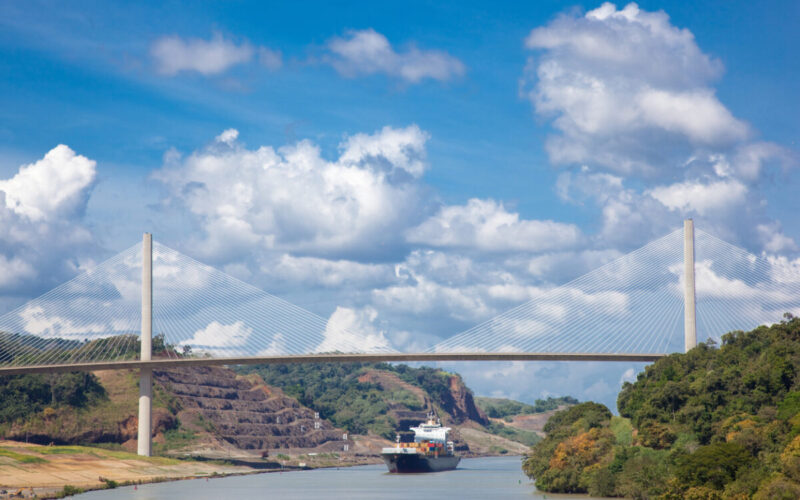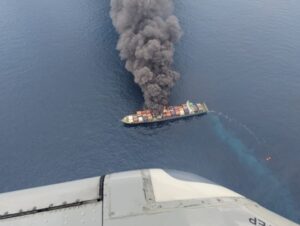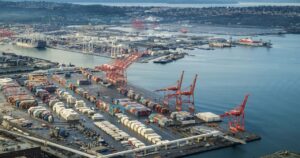The economic loss caused by disruption in two of the world’s largest shipping routes, the Red Sea and Panama Canal, is an estimated $1.25 trillion according to analysis by Russell Group, a data and analytics company.
The figures are taken from Russell’s new report ‘Why Insurers Should Monitor Their Transit Route Accumulations’.
Russell’s Red Sea trade analysis from October 2023 through to May 2024, at the height of Houthi attacks on shipping vessels, shows that the commodities most impacted are crude oil, plastic materials, telephone equipment, cars and clothing.
Similarly, Russell’s analysis of trade through the Panama Canal during the vessel restrictions throughout 2023, highlights the commodities most impacted are LPG, crude oil, cars and people carriers.
READ: MSC vessel breaks Panama Canal transit record
Blockages at two of the world’s largest shipping routes have thrown shipping schedules and global supply chains in disarray, as vessels are opting for longer alternative routes adding to delays and increasing costs.
Suki Basi, Managing Director of Russell Group, commented: “The figures that we have released today are unique in that they quantify the economic impact of the ongoing disruptions in two of the world’s largest shipping routes, rather than focusing on other metrics such as vessel numbers.
“Clearly, it highlights the potential ripple effect of any disruption within a key transit route, which plays a vital role in moving goods across the world. This is what we have highlighted in our new report.
Basi added that the disruption is increasingly affecting the maritime supply chain, with major ports around the world experiencing higher levels of congestion and delays in ship arrivals.
“My concern is that if the disruption shows no sign of ending, that firms may place orders earlier than usual to meet demand for the holiday season towards the end of the year,” he continued.
“This would, as many analysts have already noted, add further pressure onto what is already a stressed supply chain.”
Late last month, the Panama Canal announced that the new Long Term Slot Allocation (LoTSA) methodology will be implemented beginning 1 October.








